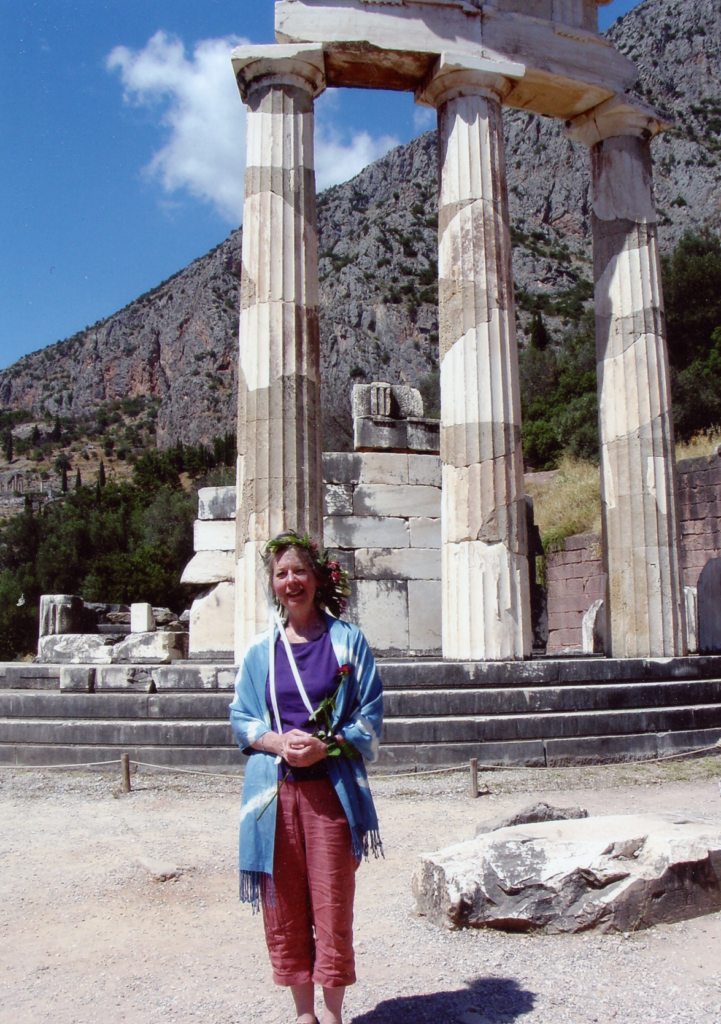
Following excerpted forthcoming Morning Star’s Seven Steps to Spiritual Awakening: The Mindful Guide to Life and Stress Reduction
According to the ancient Delphic Pythagorean maxim, It is wise advice to measure anything before we act; always measure perfectly. As we can see from the lack of measure, our culture and society is measureless. The dysfunction of being measureless results in hubris, exaggerated self pride, this recklessness goes hand in hand with ate, being blinded. Atē was the ancient Greek personified spirit of delusion, infatuation, blind folly, rash action and reckless impulse who led people down the path of ruin.
The lack of measure, or “measurelessness”, results in holding onto rigid and dogmatic measures, such as political loyalties and the Church deeming abortion a sin. Christianity desires to control, stupefy, and intoxicate with fear; the one thing it does not desire is measure.
The 2019-2020 pandemic glaringly exposed the measurelessness of our culture and society.
Of this maxim it has been said that the ancient Greek Seven Sages wished humankind to observe due measure and proportion in all matters instead of making irrevocable decisions about any human affairs. It has been obvious that “due measure and proportion” was a far cry from America’s response to the pandemic due to the hubris, exaggerated self pride, recklessness, self-centeredness, narcissistic and egocentric personality of the President and his cronies.
When we are unauthentic in “who we are,” we are on the verge of being measureless. The dysfunction of being measureless results in hubris, exaggerated self pride, this recklessness goes hand in hand with atē,[i] being blinded. Atē “instills confusion in the mind of every subject of hubristic behavior, and she thus personifies self-destructive syndromes like defensive avoidance, over vigilance, reactivity, and denial. These are ruinous states of mind that have led many economies, armies, states, and empires to disaster or even to collapse.”[ii]
Being measureless leads to stupidity. According to the Popol Vuh, the soul has five enemies—disease, death, stupidity, arrogance, and fear. Of the first two, one is only marginally under human control while the other is completely beyond it. The third, fourth, and fifth are not. The Maya believed that disease was the whisper of death, its first hint. But it was also an invitation from the Lords of Life to engage in the miracle of turning death into resurrection, of changing non-being into Being. A soul could accept this challenge by overcoming its stupidity through education, thereby learning to convert fear and arrogance into a specific set of personal qualities.
Stupidity was the greatest vice; its cancerous effects could be seen in all the others. The hallmarks of stupidity were ignorance, a kind of overall dullness of spirit, and a naive incompetence. In Maya experience, it was because of stupidity that human beings were both fearful and arrogant. If they pursued their educations they would naturally become humbler, and they would learn that by practicing oneness with God they have nothing to fear from either life or death.
The Maya believed that fear cripples the virtues of cleverness, resourcefulness, humor, courage, necessary ruthlessness, and passion. It also keeps the soul off balance so that it cannot feel centered or express itself with dignified grace. Arrogance shows up as many secondary evils, including greed, pride, vanity, lying and false pretenses, incompetence, savagery, cold hard-heartedness, and the desire to stay ignorant.
Ponder these concepts and how it affects your life in the present and how it affected it in the past.
[i] Atē was the ancient Greek personified spirit (daimona) of delusion, infatuation, blind folly, rash action and reckless impulse who led men down the path of ruin.
[ii] John D. Pappas, “The Concept of Measure and the Criterion of Sustainability,” 81. (http://www.academia.edu/29332856/The_Concept_of_Measure_and_the_Criterion_of_Sustainability_The_St._Johns_Review_)
